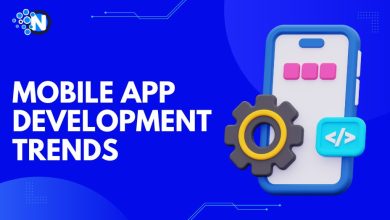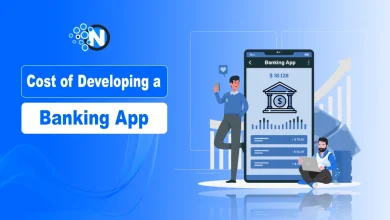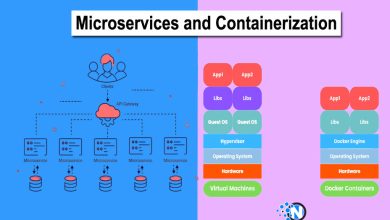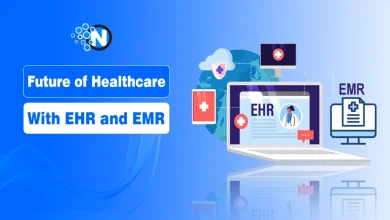Choosing End-to-End Software Product Development Services

So, you’re looking to develop your next software product. Overwhelmed with options?
It’s easy to see why. For startups and enterprises without in-house programmers, outsourced software product development services are the best option, and there’s a lot of them out there.
There are many options available to work with, but only a few offer a comprehensive solution. End-to-end software product development solutions help your product succeed from the ideation phase all the way to the support and maintenance phase.
To get that support and ideal maintenance, the choice of solution is the most important factor. Experienced SaaS Development solutions by Solicy or Syndicode have the essential expertise to guide your brand through every phase, confirming that all technical and market needs are met. These teams not only have the technical know-how but also the strategic insight to adapt to new user demands.
Let’s explore what makes end-to-end software product development services a great option for your business, no matter the size.
What are End-to-End Software Product Development Services?
End-to-end software product development services are comprehensive; one team manages all the steps of the development lifecycle, from concept to deployment and beyond. Product development services companies in this category oversee all the following steps:
- Product ideation
- Prototyping
- Development
- Testing
- Deployment
- Maintenance
Software product development agencies that provide end-to-end services are great choices for both small startups and large enterprises thanks to having a single point of contact for the entire development lifecycle.

Let’s explore the various stages in product development to understand how these services work.
Phase 1: Ideation and Product Strategy
All software products start with ideas. The ideation stage is where you decide on goals, identify the target audience, and outline the features that you want the product to have. End-to-end software product development companies help you with each of these steps. Some of the tasks they can be especially helpful with are:
- Market research: software product development agencies are some of the best options for helping you with market research because they have the experience of collaborating with many different clients in the industry.
- User needs analysis: E2E development teams can help you understand what your customers need and want through user interviews, usability testing, and user journey mapping.
- Brainstorming sessions: once you have the data you need, the development team will help you generate ideas with collaborative sessions. This way, the unique experiences of the development team and your business leadership will lead to a more innovative product.
- Product roadmap: once you’re done with ideas and research for your product, the development team will collaborate with you to outline a strategic plan for creating your software product. They’ll outline the direction of the product’s development in a way that aligns team efforts and manages stakeholder expectations.
Phase 2: Prototyping and Design
Before getting in too deep, excellent software product development companies will create a prototype and design the appearance of the application. To do this, they will create wireframes, design UI/UX, and facilitate user testing.
UI and design testing enables you to get valuable feedback on how customers may respond to the product. It also allows you the opportunity to request any changes to the product’s design or features to meet your brand guidelines.
Phase 3: Development and Coding
Experienced outsourced software product development services providers know the best practices for coding and developing a software product from end to end. During the most substantial stage of development, the development team will build the frontend and backend, integrate APIs, and set up databases and infrastructure for your product.
There is some nuance for startups and enterprises given their unique needs and budgets. Startups may benefit most from opting first for a minimum viable product (MVP) to better mitigate risk. However, enterprises can instead afford to lean on the latest technology stacks and scale their solutions for their needs.
Phase 4: Quality Assurance and Testing
Although some testing was already done in the design phase, this stage puts the actual code and functionality of your product under a microscope. Thorough testing is necessary to ensure that your product is reliable, secure, and meets customer expectations. There are a few types of testing that experienced end-to-end software product development agencies will use for quality assurance:
- Unit testing: components of your product are examined to find bugs early on and make sure your product works as intended.
- Integration testing: how do components of your product interact with each other? An E2E development team will ensure that data and communication between modules flows correctly.
- Performance testing: development teams will evaluate the responsiveness and stability of the product under different loads, stresses, and scales.
- User acceptance testing (UAT): the software will be evaluated with real-world beta testers to get feedback that can help you decide if the product is ready for deployment.
For startups, testing can help avoid the steep costs of critical launch day bugs. Meanwhile, for enterprises, rigorous testing can help protect their brand’s reputation.
Phase 5: Post-Launch Support and Maintenance
One crucial element of an end-to-end software product development agency that sets them apart from other types of development teams is a commitment to support. There will always be a need for ongoing support to fix bugs, provide feature updates, and change features in accordance with user feedback.
Because of this, great software development services will always include post-launch support. Startups and enterprises both can gain from this support to iterate on successes and sustain product stability over time.
Choosing End-to-End Software Product Development Services
Now that we’ve identified the stages in product development that end-to-end development agencies can help with, are they right for you?
For Startups
Small businesses have a lot to gain from end-to-end software product development solutions, but there are some important things to consider. Small teams may feel at first that they don’t have as much control over the development process. However, good end-to-end teams are communicative and collaborative in ways that can overcome this.
Startups may also fear dependency; things could go very wrong if the business relationship with the agency ends. However, excellent E2E development teams provide clients with the resources they need to continue operations without them if necessary. However, ongoing support and maintenance will always be needed in some form.
Enterprises
Large businesses have unique needs that can be met in earnest by end-to-end software product development services companies. However, as with startups, there are important considerations. Firstly, enterprises often have existing systems that need to be integrated with new products. This can be a challenging task, but good teams will be able to dive in to understand your systems and create an integration plan that meets your expectations.
Additionally, enterprises have unique security needs, especially since they often work with several other vendors. When investigating outsourced software product development services, ask questions to determine how they can keep your intellectual property and data secure.
The Path to End-to-End Software Development
Startups and enterprises can both benefit from working with comprehensive development teams. Good end-to-end teams know how to address the needs of both small and large businesses from the ideation phase all the way to ongoing support and maintenance.
Great software product development companies collaborate with your business to help you retain control over the process so that you can ensure it meets your brand guidelines and expectations.
Now that you know how end-to-end services can benefit your business, you know exactly what questions to ask an agency about their software product development services. Their answers will help you make an informed decision about whether their comprehensive services are right for you.




